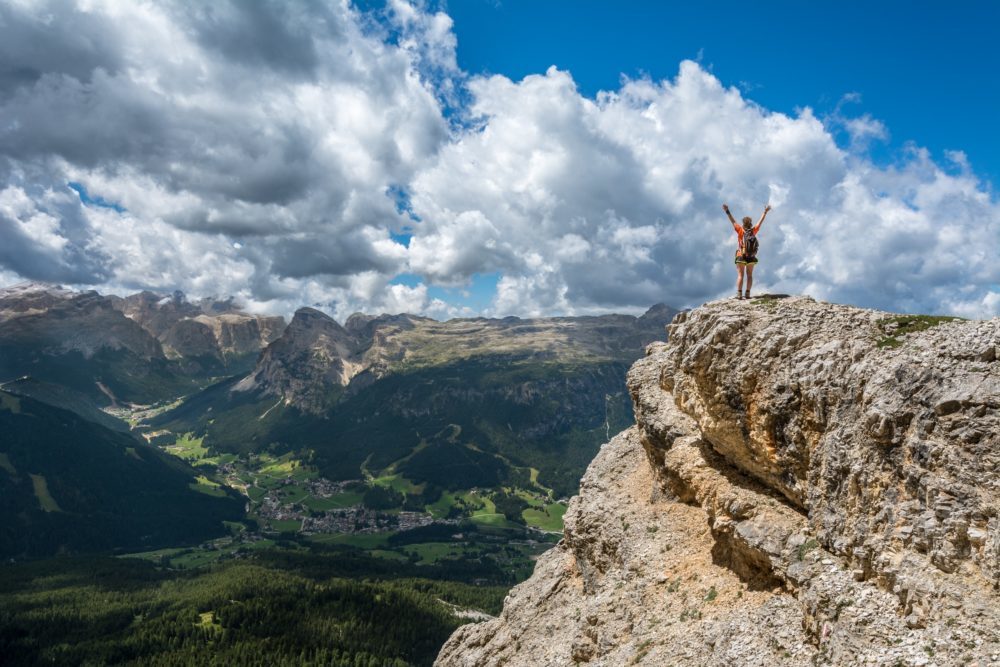Four out of five Americans will suffer from back pain at some point in their lives making it one of the most common physical health problems in the United States. Some causes of back pain are inevitable such as aging or genetics, but other causes can be avoided such as injury and strain.
Luckily, there are plenty of ways to manage and prevent increased back pain so that we can continue doing physical activities we love, which are actually good for our overall health anyway!
While fun, recreational activities like playing sports, going on runs or hiking can be strenuous on our back muscles. Specific to hiking, there are plenty of ways we can prepare and modify our habits to keep our backs healthy for longer.
Preparing with your body in mind
Part of planning for your hike should be focused on avoiding back strain or injury. The best thing you can do for any of your muscles is to properly train before simply diving in. Some hikes will require using your muscles more extensively, adapt accordingly.
Ideally, you should perform exercises to strengthen your core at least three times per week leading up to your hike. A weak core is one of the leading causes to chronic lower back pain. Knowing some hikes require more equipment than others, increasing your normal core strengthening regimen should be worked into your preparation. Some of these exercises could include yoga, crunches, weight-lifting, planks, etc.
Once you get out and about, maintaining proper posture is extremely important. This can become difficult when taking on longer journeys. It may help to practice your hike by packing a bag and going on a walk in the days leading up. This will help you assess how much you can properly carry and how long you can carry it.
After your strengthening exercises (and post hike) it’s important to take days off from exercise for rest and recovery. Your muscles need time to repair from being strained. In addition, dedicate time to getting enough sleep. If you miss out on sleep, you will in turn miss out on hormones associated with muscle recovery which is necessary to effectively build core strength.

Make smart backpack choices
Choosing the right backpack for your hike is just as important as strength-training and preparation. Building up muscle is the first step, but considering what your body can endure throughout the trip should be the next thought.
The first thing to consider when purchasing a backpack is the size. You’ll want to choose the smallest, functional backpack possible. Of course, you don’t want a backpack so small that you are unable to pack the hiking essentials. But, the smaller the bag, the less likely you are to fill it up with unnecessary items that can potentially end up straining your back.
Try to choose a backpack with thick shoulder straps. The wider the strap is across your shoulders, the less of a strain the weight will be on your shoulders and spine. You’ll also want to make sure that your backpack straps have a quality buckle, so you can make easy adjustments depending on how much weight you’re carrying.
Never forget that it is important to use both straps at all times. Neglecting to distribute weight on your back evenly will cause you to strain your shoulders and neck and will lead to bad posture down the road. If there is a waist strap, use it to your advantage. Buckling the waist strap can keep the backpack from swaying back and forth.
Stay mindful
There are several reasons to go on a hike. Some of us hike to get in touch with nature, an opportunity to clear our minds, or for exercise. Some of us for a combination of all three. Regardless of your reason, you can take advantage of all the benefits while staying mindful throughout your journey.
There are some items you can pack to make the experience easier. For instance, to avoid falls and maintain balance, consider bringing along hiking poles. If you’re expecting to have to wade through water or cross other soft terrain, hiking poles will be a valuable tool. Hiking poles are also great for those who struggle keeping good posture throughout the hike.
You can also pack a back brace. Back braces will also help hold you accountable for keeping your back straight and your spine properly aligned. Like everything else, your spine will thank you later!
Don’t be afraid to take breaks along your hike. Not only will this give your body a chance to rest, but if you find yourself starting to hunch, it is an opportunity to stretch out.
At the end of your day, you can continue taking proper care of yourself by applying ice and heat to your back. If your hike is longer than a day, bring instant ice and heat packs with. You can only enjoy the feeling of accomplishment of the end of your hike if you feel well and have no regrets!








